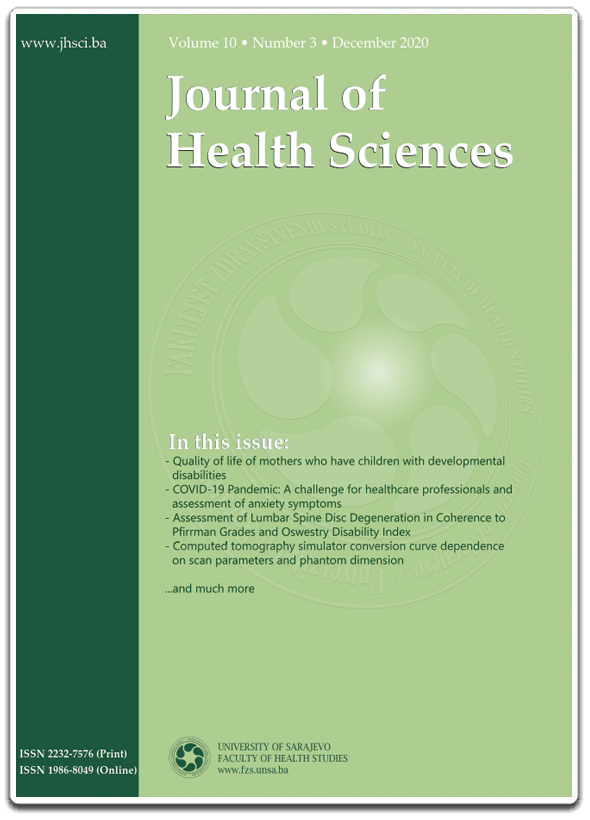Analysis of variables of the nutrition index alcohol and medicament use and PTSD
DOI:
https://doi.org/10.17532/jhsci.2019.683Keywords:
Nutrition index, alcohol, medicaments, post-traumatic stress disorderAbstract
Introduction: The main aim of the study was to examine the interdependence of values of the nutrition index, the use of medicaments, and alcohol consumption in the group of subjects with post-traumatic stress disorder (PTSD) and in control group without PTSD.
Methods: To determine the interdependence of different indices of nutrition and the alcohol and drug consumption in both groups, the crosstab model was used.
Results: In both of the tested groups, medicament users had higher average values for nutritional indexes compared to the subjects that are not the consumers of medicaments, but the confirmed differences were not statistically significant. The subjects with PTSD who consume alcohol had lower average values for nutritional indexes compared to the subjects who do not consume alcohol. In the control group, subjects who consumed alcohol had higher mean values for nutritional indexes than those who did not consume alcohol. Differences in the values of the nutrition index between alcohol and non-alcohol subjects were not statistically significant either in the PTSD group or in the control group. The subjects with PTSD had less average values of all the used nutrition indexes compared to the control group subjects, but the confirmed differences were not statistically significant.
Conclusion: Our results indicate that medicaments use and alcohol consumption do not exert a statistically significant effect on the values of the nutrition index in any of the study groups. Possible concomitant use of drugs with the opposite effect on the monitored parameter (nitrazepam and amitriptyline vs. SSRI and bupropion) can lead to findings like this. We recommend further research to eliminate influence of pharmacodynamic effects of alcohol, drugs, and stress on the development of weight gain or loss.
Downloads











